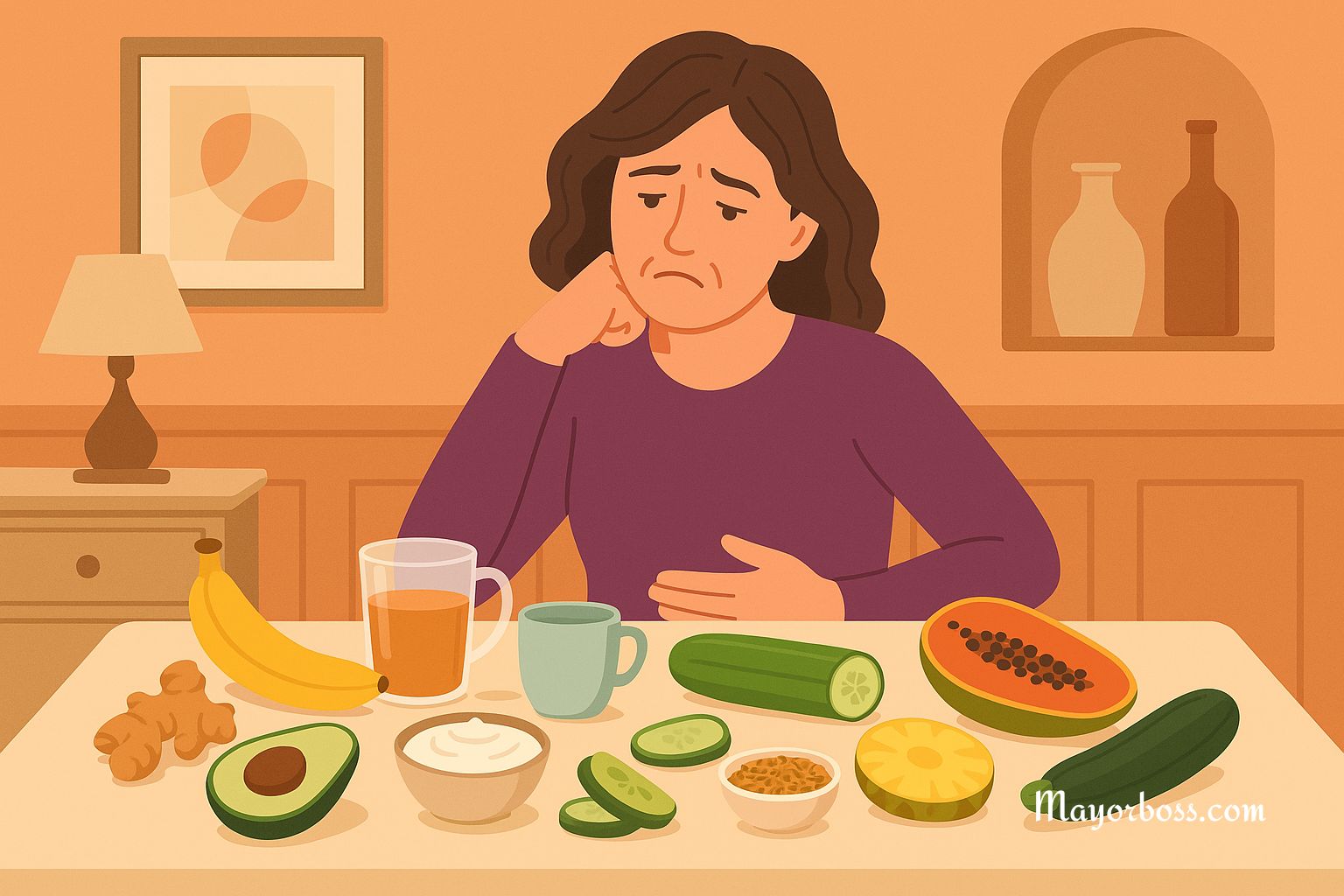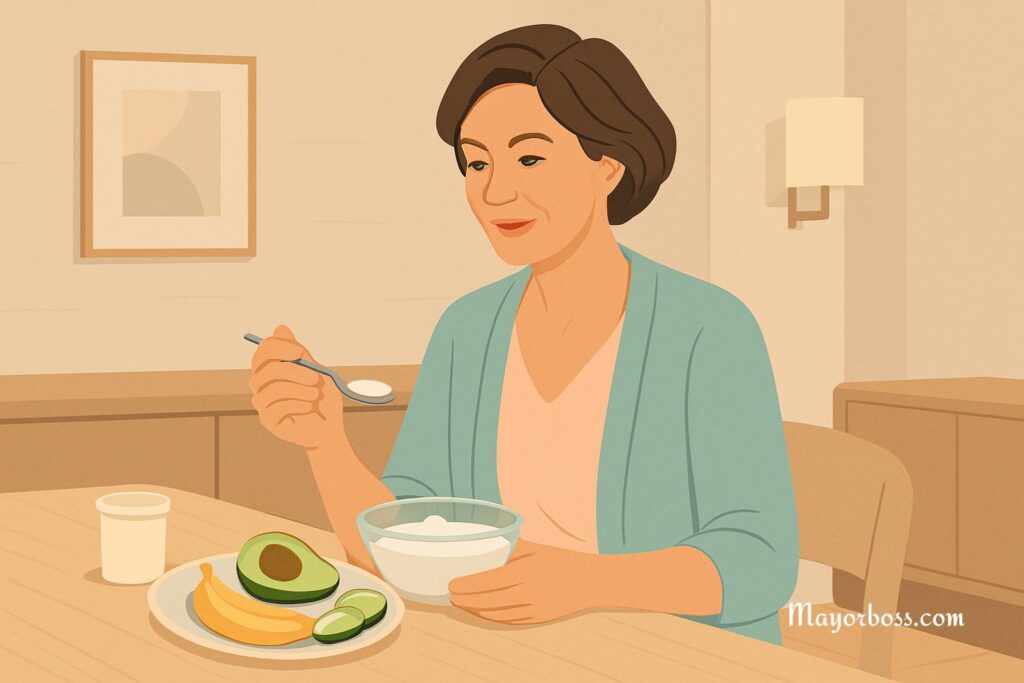Anti-Bloating Foods That Help Reduce Stomach Discomfort
Bloating is a common problem. Many people feel it as a tight, full, or swollen belly, often with gas or discomfort. It can happen after eating certain foods, eating too fast, or due to gut issues. Thankfully, some foods can help ease this feeling. These anti-bloating foods are gentle on your stomach and may help reduce the pressure and pain.
What causes bloating? Bloating often happens when gas builds up in your digestive system. It can come from swallowing air, eating high-fiber foods too quickly, or changes in your gut bacteria. In some people, bloating can also be related to irritable bowel syndrome (IBS), constipation, or food intolerances.1
No matter the cause, the right foods can often help calm your stomach and reduce bloating.

1. Ginger
Ginger is one of the best natural remedies for bloating. It helps your stomach empty faster and reduces gas buildup.2 It also has anti-inflammatory properties, which can soothe your digestive tract. You can add fresh ginger to warm water, tea, or meals.
2. Peppermint
Peppermint relaxes the muscles in your gut. This can help move gas through your system and relieve cramping. Peppermint tea is especially helpful for bloating related to IBS or after a large meal.3
3. Cucumber
Cucumbers are high in water and low in fiber, which helps flush out excess salt and reduce water retention. This can ease bloating caused by too much sodium. They also contain quercetin, a plant compound that may help reduce inflammation.
4. Bananas
Bananas are rich in potassium. Potassium helps balance sodium levels in the body and can reduce water retention. Eating a banana may help if your bloating is due to eating salty foods or hormone shifts during your menstrual cycle.
5. Yogurt with Live Cultures
Yogurt that contains live, active cultures (probiotics) can help restore healthy gut bacteria.4 This supports better digestion and may prevent gas and bloating, especially if you have trouble breaking down lactose or have mild gut imbalances.

6. Papaya
Papaya contains an enzyme called papain. This enzyme helps break down proteins and aids digestion. Papaya can also help move things along in your intestines, reducing constipation and bloating.
7. Pineapple
Pineapple has bromelain, another natural digestive enzyme. Like papain in papaya, bromelain supports protein digestion and may calm inflammation in the gut. Eating fresh pineapple (not canned in syrup) is best for bloating relief.
8. Avocados
Avocados are high in potassium and fiber. Potassium helps with fluid balance, and fiber helps keep your digestive system regular. Just be mindful of portion sizes, as avocados are also high in healthy fats, which can be hard to digest in large amounts.
9. Fennel Seeds
Fennel seeds have been used for centuries to fight bloating and gas. They help relax the digestive muscles and reduce gas buildup. You can chew a small amount after meals or steep them in hot water for a soothing tea.
10. Zucchini
Zucchini is hydrating, low in calories, and easy to digest. It helps flush out extra fluids and provides gentle fiber. It’s a great food to eat cooked, especially when your stomach feels sensitive or full.
Tips to Avoid Bloating
While eating anti-bloating foods helps, it’s also important to change some habits that make bloating worse.5 Here are a few tips:
- Eat slowly and chew your food well.
- Avoid carbonated drinks like soda.
- Don’t talk while eating to avoid swallowing air.
- Skip chewing gum, which increases air in your gut.
- Stay hydrated throughout the day.
- Limit foods known to cause gas, like beans, cabbage, onions, and artificial sweeteners.
When to See a Doctor
If you feel bloated all the time, or if the bloating comes with pain, weight loss, or changes in your bowel habits, talk to your doctor. These could be signs of an underlying health condition, such as IBS, food intolerances, or other digestive problems.
Final Thoughts
Bloating is uncomfortable, but it can often be improved with a few smart food choices. Adding ginger, cucumbers, bananas, and other gentle foods to your diet can support digestion and reduce the swelling feeling in your belly. Pair these with healthy habits to keep your gut working smoothly and help you feel more comfortable after meals.
